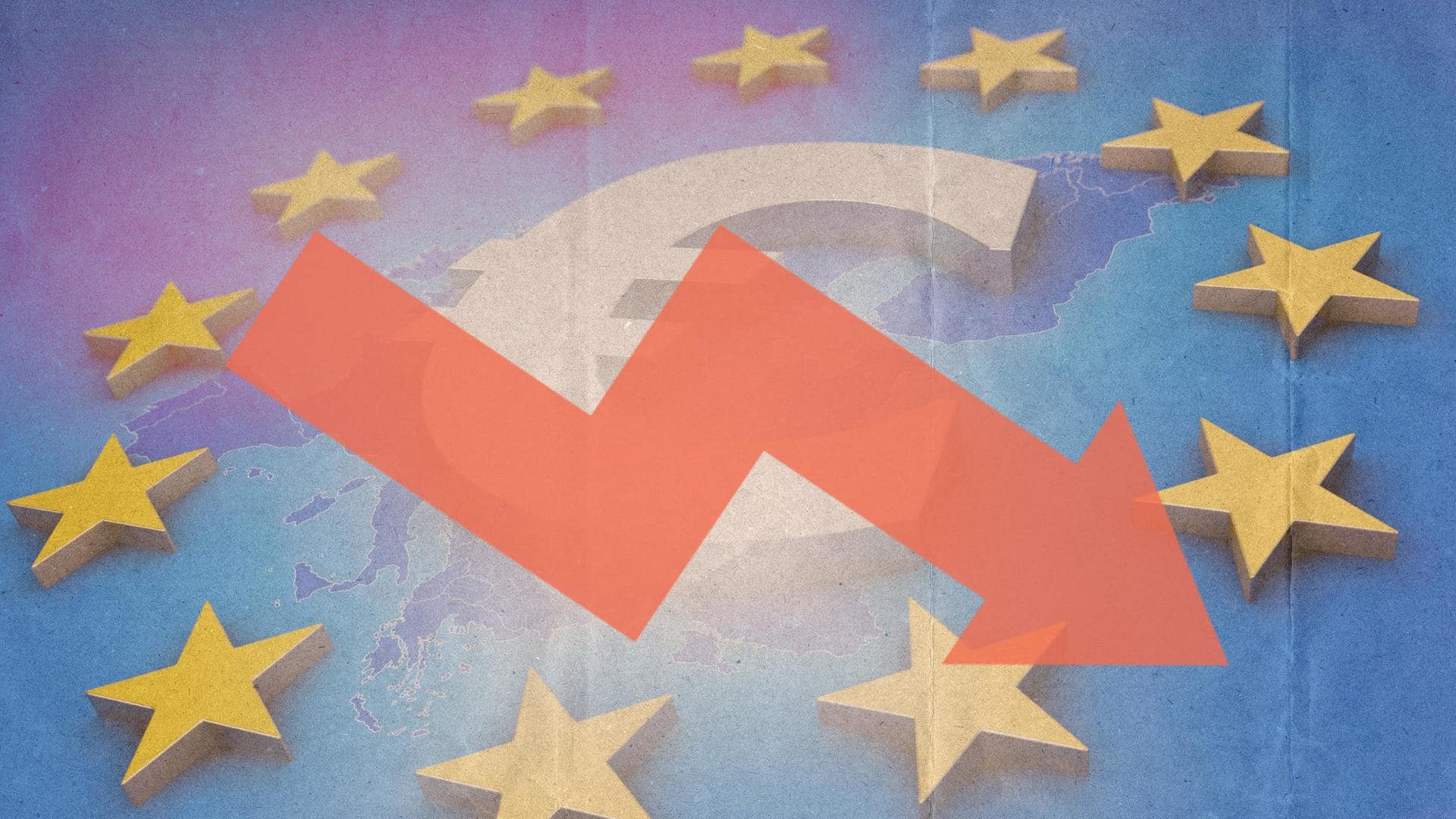
Eurozone enters recession after GDP contracts for second consecutive quarter
What's the story
After defying predictions of recession multiple times, the eurozone economy finally slipped into a technical recession in the first quarter of 2023. The gross domestic product (GDP) of the region fell by 0.1% in the first three months of the year. This is the second consecutive quarter where the eurozone's GDP contracted. Two consecutive GDP contractions are considered a technical recession.
Context
Why does this story matter?
The eurozone has been dealt a tough hand over the past year. War, inflation, energy shocks, and tight monetary policies have held back economic activity in the single currency area. A technical recession is the most unsurprising result for the region. The pertinent question, however, is whether this is a sign of something even worse. We will have to wait and see.
GDP
GDP in the last quarter of 2022 fell 0.1%
In the last quarter of 2022, the GDP of the region dropped by 0.1%. Previous estimates had shown the region's growth to flatline. The new data released on Thursday by Eurostat, the EU's statistical agency, is also a downward revision of earlier estimates of 0.1% growth in the first quarter. Previously, Germany, Europe's biggest economy, had also sunk into a technical recession.
EU
EU's GDP increased by 0.1% in the first quarter
The fall in the GDP of the eurozone—the area comprising 20 countries of the EU with the euro as the primary currency—is in contrast to the overall performance of the EU. In Q1 2023, the EU's GDP increased by 0.1%. In the last quarter of 2022, the EU saw a 0.2% dip in GDP. However, the seasonally adjusted GDP rose by 1% for both.
Components
Household consumption and government expenditure fell in the eurozone
The eurozone has been struggling to deal with inflation. The rising prices and rate hikes affected the region in the first quarter. Household consumption in the first quarter fell by 0.3% in the eurozone and EU. Government expenditure dropped by 1.6% in the eurozone and 0.9% in the EU. The eurozone also saw a 0.1% fall in exports.
Resilient
Eurozone has managed to hold off a severe economic downturn
Despite entering a technical recession, economists are surprised by the eurozone economy's resilience. Many expected the region to experience a severe downturn in the last two quarters. However, it has managed to hold on. A warm winter, lower wholesale energy prices, fiscal stimulus, and the reopening of China helped the region ward off extreme consequences.